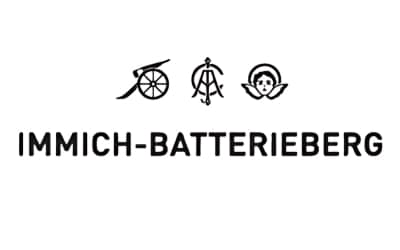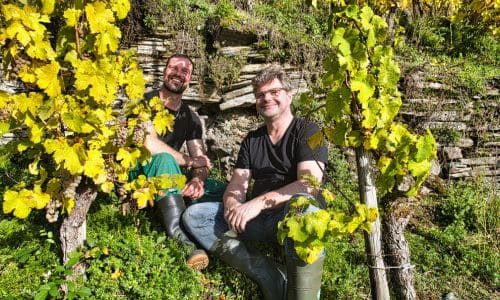
Immich Batterieberg
We are very excited to be working with Gernot Kollmann, one of the most watched winemakers in Germany. After working at Van Volxem and then making the Knebel wines in 2008, Gernot had the opportunity to purchase the historic estate of Immich-Batterieberg.
The Immich family history in the Mosel dates back to the Middle Ages, when a Prince von Esch possessed the 12th-century building. Located in the center of Enkirch, the original section of the castle, Escheburg, is named after him. The Immich family would own the estate for over 500 years (1425–1989). In the mid-19th century, Carl August Immich needed more cultivable land on which to plant vines. His holdings included the Enkirch hillside, which was less a hillside and more a steep cliff face of solid stone; using sprengbatterien (a battery of explosives filled with gunpowder) from 1841 to 1845, he reduced the site to rubble, which not only made it cultivable but also gave the vineyard its name, Batterieberg (“demolition hill”). The estate’s name refers to this site.
The estate consists of 13 hectares. Holdings include parcels in the Batterieberg, Ellergrub, Steffensberg and Zeppwingert. All of these sites contain parcels of very old, ungrafted, pre-phylloxera vines–a genuine treasure trove of vine material almost unknown elsewhere in Germany.
The wines are all produced dry in a combination of used casks and stainless steel with full fermentations, ambient yeasts and nothing added to the wines except a low amount of sulfur. The wines are therefore natural and vegan. They are also compellingly vibrant, long-lived in the cellar, and most profoundly terroir-driven. Immich-Batterieberg has been practicing organic viticulture for over ten years and certified for the first time in 2022.

est 2005
© 2025 Vino Veritas, All Rights Reserved





